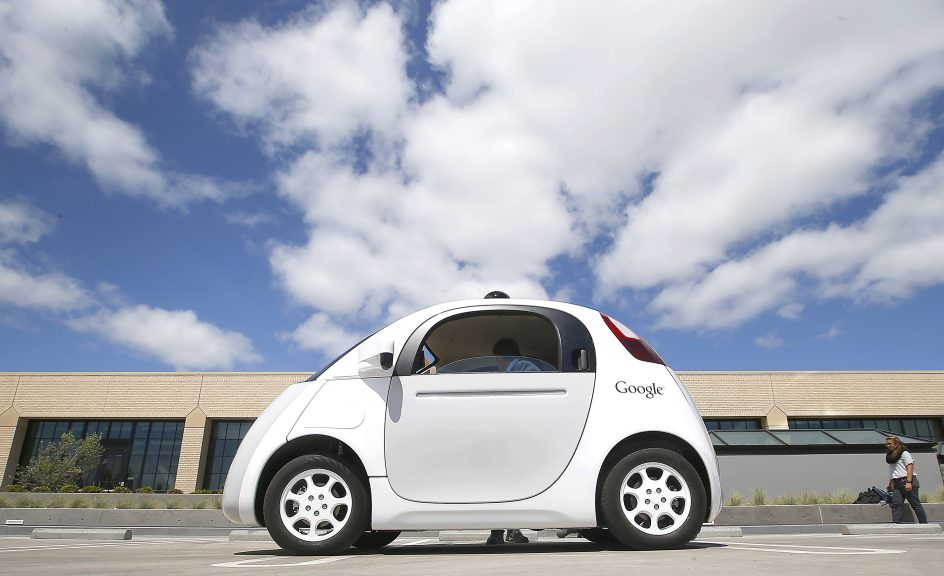LOS ANGELES — Cars with no steering wheel, no pedals and nobody at all inside could be driving themselves on California roads by the end of the year, under proposed state rules that would give a powerful boost to the fast-developing technology.
For the past several years, tech companies and automakers have been testing self-driving car prototypes in neighborhoods and on freeways.
But regulators insisted those vehicles have steering wheels, pedals and human backup drivers who could take over in an emergency.
On Friday, the state’s Department of Motor Vehicles proposed regulations that would open the way for truly driverless cars.
Under the rules, road-testing of such vehicles could begin by the end of 2017, and a limited number could become available to customers as early as 2018 – provided the federal government gives permission.
Current federal automobile standards require steering wheels, though the U.S. Transportation Department has encouraged self-driving technology and could look favorably on real-world pilot projects.
While a few other states have welcomed testing, the proposal released Friday is a major step forward, given California’s size as the most populous state, its clout as the nation’s biggest car market and its longtime role as a cultural trendsetter.
“California has taken a big step. This is exciting,” said Bryant Walker Smith, a law professor at the University of South Carolina who tracks government policy on self-driving cars.
The proposed regulations amount to the most detailed regulatory framework of any state. They are subject to a comment period and a public hearing and could change. Regulators hope to put them into effect by December.
The proposal is more than two years overdue, reflecting complex questions of safety and technology. Self-driving systems rely on highly advanced sensors and software.
“We don’t want to race to meet a deadline,” said Bernard Soriano, a leader of the motor vehicle agency’s self-driving program. “We want to get this right.”
In one important change from prior drafts, once a manufacturer declares its technology is road-ready, it can put its cars on the market as long as federal officials agree. That self-certification approach mirrors how federal officials regulate standard cars, and represents a big victory for such major players as Waymo, Google’s self-driving car project.
The chief skeptic of the technology, California-based Consumer Watchdog, said the proposal does not protect the public.
The DMV “is being seduced by the hype from the self-driving car developers,” the nonprofit group’s John Simpson said. “There’s been a rolling back of sensible safety provisions.”
Meanwhile, some companies want more.
The Association of Global Automakers, which represents a dozen manufacturers, said the proposal would establish “significant barriers that do not exist in other states and are inconsistent with federal guidance.”
The technology is developing quickly. More than a year ago, a Waymo prototype with no steering wheel or pedals drove a blind man on city streets in Texas.
Supporters say the cars may one day be far safer than those with humans at the wheel, since the machinery won’t drive distracted, drunk or drowsy.
Send questions/comments to the editors.


